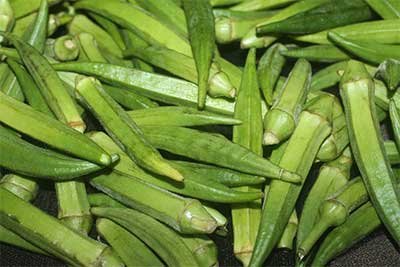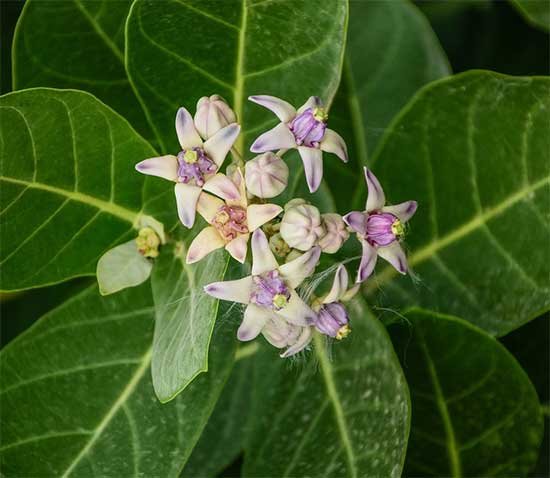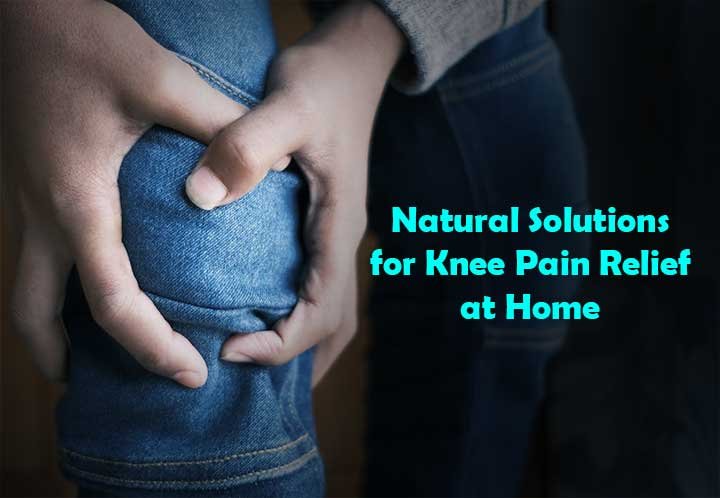I. Introduction
Knee pain can be a debilitating condition that affects people of all ages and backgrounds. It can be caused by a variety of factors, including injury, overuse, and underlying medical conditions such as osteoarthritis. While there are medical treatments available for knee pain, many people prefer to explore natural solutions that can be done at home. In this blog post, we’ll discuss some natural remedies and techniques that can help alleviate knee pain and improve overall joint health. Whether you’re an athlete or simply someone who experiences knee pain from time to time, these tips may provide some relief and help you get back to your daily activities.
II. Causes of Knee Pain
The knee is one of the largest and most complex joints in the body, composed of bones, cartilage, ligaments, and tendons. Knee pain can be caused by a variety of factors, and understanding the underlying cause is essential for effective treatment.
One common cause of knee pain is osteoarthritis, which is a degenerative joint disease that affects millions of people worldwide. Osteoarthritis is caused by the breakdown of cartilage in the knee joint, which can lead to pain, stiffness, and limited range of motion. This condition is more common in older adults, but it can also occur in younger people who have experienced knee injuries.
Another common cause of knee pain is injury. Knee injuries can occur during sports, exercise, or everyday activities such as walking or climbing stairs. Some common knee injuries include ligament sprains, meniscus tears, and fractures. Symptoms of knee injuries may include pain, swelling, stiffness, and difficulty walking.
Overuse is another factor that can lead to knee pain. Athletes and individuals who engage in repetitive activities such as running, jumping, or squatting are more prone to developing knee pain due to overuse. This can result in conditions such as patellofemoral pain syndrome or iliotibial band syndrome, which cause pain around the kneecap and outer side of the knee, respectively.
Other causes of knee pain may include inflammation due to an autoimmune disease such as rheumatoid arthritis, bursitis, tendonitis, or a dislocated kneecap. It’s important to note that in some cases, knee pain may be a symptom of a more serious medical condition, such as a tumor or infection.
In order to determine the underlying cause of knee pain, it’s important to consult with a healthcare provider. They may perform a physical exam, order imaging tests such as X-rays or MRIs, or perform other diagnostic procedures to identify the root cause of the pain.
Overall, knee pain can be caused by a variety of factors, and finding the underlying cause is essential for effective treatment. Whether it’s due to osteoarthritis, injury, or overuse, there are natural remedies and medical treatments available to help alleviate pain and improve knee function.
III. Natural Solutions for Knee Pain Relief at Home A. Exercise
Knee pain is a common problem that can make it difficult to enjoy daily activities, exercise, and even sleep. While there are medical treatments available for knee pain, many people prefer to explore natural solutions that can be done at home. Here are some natural remedies and techniques that can help alleviate knee pain and improve overall joint health.
A. Exercise
Exercise is one of the best natural solutions for knee pain relief. Low-impact exercises, such as walking, cycling, and swimming, can help improve joint mobility, reduce stiffness, and alleviate pain. These exercises are gentle on the knees and help to strengthen the muscles that support the knee joint. Additionally, stretching and strengthening exercises can help improve joint flexibility and reduce the risk of injury. Some examples of knee-strengthening exercises include leg lifts, hamstring curls, and squats.
B. Diet and Nutrition
A healthy diet rich in anti-inflammatory foods can help reduce knee pain. Fruits, vegetables, and whole grains are excellent sources of nutrients that can help reduce inflammation in the body. Foods that are rich in omega-3 fatty acids, such as fish and nuts, can also help reduce inflammation and alleviate knee pain. In addition to eating a healthy diet, staying hydrated is essential for keeping the knee joint lubricated. Drinking plenty of water can help keep the joint fluid levels balanced and reduce friction.
C. Herbal Remedies
There are many natural herbs and supplements that can help reduce inflammation and relieve knee pain. Turmeric is a popular herb that has been used for centuries to treat a variety of health conditions, including knee pain. It contains a compound called curcumin, which has anti-inflammatory properties that can help reduce pain and swelling in the knee joint. Ginger is another herb that has anti-inflammatory properties and can help reduce knee pain. Omega-3 fatty acids, which are found in fish oil supplements, have also been shown to reduce inflammation and alleviate knee pain.
D. Home Remedies
In addition to exercise, diet, and herbal remedies, there are several simple home remedies that can provide relief from knee pain. Ice therapy is an effective way to reduce pain and inflammation in the knee joint. Applying an ice pack to the affected area for 15-20 minutes at a time, several times a day, can help alleviate pain and reduce swelling. Heat therapy is another effective home remedy for knee pain. Applying a warm compress or taking a warm bath can help improve blood flow to the affected area and reduce pain. Epsom salt baths are also a popular home remedy for knee pain. Soaking in a warm bath with Epsom salt can help reduce pain and inflammation in the knee joint.
knee pain can be a frustrating and debilitating condition that can interfere with daily activities. However, natural solutions are available that can help alleviate pain and improve joint health. Exercise, diet, herbal remedies, and home remedies can all help reduce inflammation and alleviate knee pain. By incorporating these natural solutions into your daily routine, you can improve your quality of life and reduce the impact of knee pain on your daily activities. Remember, if your knee pain persists or worsens, it is important to seek medical advice to determine the underlying cause and appropriate treatment.
Okra for Knee Pain relief :
Okra, also known as ladyfingers, is a nutritious vegetable that is often used in various dishes. However, it is not commonly known that okra can also be used as a natural treatment for knee pain.
Okra contains high levels of vitamin C and antioxidants, which can help reduce inflammation in the body. Inflammation is one of the leading causes of knee pain, and reducing it can help alleviate pain and discomfort.

To use okra for knee pain relief, simply chop up a handful of fresh okra and boil it in water for 10-15 minutes until it becomes soft. Strain the water and let it cool until it is warm but not hot. Then, use a clean cloth or towel to soak up the water and wrap it around the affected knee. Leave it on for 10-15 minutes and repeat the process as necessary.
Alternatively, you can drink okra water to help reduce inflammation in the body. To make okra water, slice a few okras and soak them in water overnight. In the morning, remove the okras and drink the water on an empty stomach.
It is important to note that while okra can be an effective natural treatment for knee pain, it is not a substitute for medical advice. If your knee pain persists or worsens, it is important to seek medical attention to determine the underlying cause and appropriate treatment. Additionally, always consult with your healthcare provider before starting any new supplement or treatment regimen.
Calotropis (jelledu Aku in telugu) for knee pain relief

Calotropis, also known as milkweed, is a plant that is native to Asia and Africa. It has been used for centuries in traditional medicine to treat various ailments, including knee pain. Calotropis contains natural anti-inflammatory and analgesic compounds that can help reduce pain and inflammation in the knee joint.
To use calotropis for knee pain relief, start by collecting fresh leaves from the plant. Crush the leaves and extract the juice. Apply the juice to the affected knee and massage it gently for a few minutes. Leave it on for 20-30 minutes before washing it off with warm water.
Note : You can add Castor Oil on Calotropis leaf and apply on your Knee overnight and morning clean with normal water, it work effective also
Another way to use calotropis for knee pain relief is to make a poultice. To make a poultice, crush fresh calotropis leaves and mix them with a small amount of warm water to form a paste. Apply the paste to the affected knee and cover it with a clean cloth or bandage. Leave it on for a few hours before removing the poultice.
It is important to note that while calotropis can be an effective natural treatment for knee pain, it is not a substitute for medical advice. If your knee pain persists or worsens, it is important to seek medical attention to determine the underlying cause and appropriate treatment. Additionally, always consult with your healthcare provider before starting any new supplement or treatment regimen.
IV. Conclusion
To sum up, knee pain can be a challenging condition that can affect your daily activities and quality of life. However, there are natural solutions available that can help alleviate pain and improve joint health. Exercise, a healthy diet, herbal remedies, and simple home remedies can all help reduce inflammation and alleviate knee pain. It is important to remember that if your knee pain persists or worsens, it is essential to seek medical advice to determine the underlying cause and appropriate treatment.
Incorporating these natural solutions into your daily routine can help you take control of your knee pain and improve your overall well-being. By focusing on maintaining a healthy lifestyle and exploring natural remedies, you can reduce the impact of knee pain on your life and enjoy a more active and fulfilling lifestyle. Remember to always consult with your healthcare provider before starting any new exercise or supplement regimen, and to seek prompt medical attention if you experience severe or persistent knee pain. With the right care and management, you can find relief from knee pain and enjoy a happier, healthier life.
FAQs:
Q: What are some natural solutions for knee pain relief?
A: Natural solutions for knee pain relief include low-impact exercises such as walking, cycling, and swimming, stretching and strengthening exercises, a healthy diet rich in anti-inflammatory foods, herbal remedies like turmeric and ginger, and home remedies like ice therapy, heat therapy, and Epsom salt baths.
Q: Can a healthy diet help reduce knee pain?
A: Yes, a healthy diet rich in anti-inflammatory foods like fruits, vegetables, and whole grains can help reduce knee pain. Additionally, foods that are rich in omega-3 fatty acids, such as fish and nuts, can also help reduce inflammation and alleviate knee pain.
Q: What are some herbal remedies for knee pain relief?
A: Turmeric, ginger, and omega-3 fatty acids found in fish oil supplements are all popular herbal remedies that can help reduce inflammation and relieve knee pain.
Q: Are there any home remedies for knee pain relief?
A: Yes, there are several simple home remedies that can provide relief from knee pain. Ice therapy, heat therapy, and Epsom salt baths are all effective home remedies for knee pain.
Q: When should I seek medical advice for knee pain?
A: It is essential to seek medical advice if your knee pain persists or worsens. Additionally, if you experience severe or persistent knee pain, swelling, or difficulty moving your knee joint, you should seek prompt medical attention. Your healthcare provider can help determine the underlying cause of your knee pain and recommend appropriate treatment.








